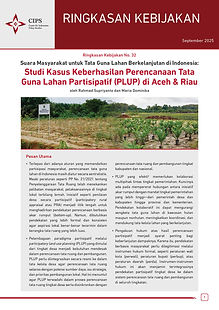Future Food Demand in Poor Indonesian Districts

Penulis

Ahmad Heri Firdaus

Ely Nurhayati
Indonesia faces a challenge: its projected food demand cannot be met by domestic food production. From 2018 to 2021, the national demand for rice, maize, wheat flour, and soybeans gradually increased in Indonesia, with an estimated annual average growth of nearly 300,000 tonnes for rice, 16,000 tonnes for maize, 26,000 tonnes for wheat flour, and about 144 tonnes for soybeans.
Domestic food production is unlikely to keep up with increasing consumption trends, and imports of these food items remain restricted, making it more difficult for international trade to help supply meet demand. Economic growth and declining poverty will not be enough to address food insecurity if the food is simply not available. The looming lack of supply may adversely affect the calorie intake of around 26 million low-income people, leading to food insecurity, malnutrition, and poverty.
This paper highlights the issue of food demand, using projections for 2025–2045 in 20 districts with poverty rates among the highest in Indonesia, where the population struggles to meet even the standard daily calorie intake. The quantity demanded for rice, maize, and wheat flour in these 20 districts is projected to increase annually by 1.20% (rice), 1.27% (maize), and 6.24% (wheat flour). If the food supply in these districts failed to keep up, the government will fail to achieve its Indonesian Vision 2045 targets in creating high-quality human resources in poor regions in Indonesia through healthier consumption.













































